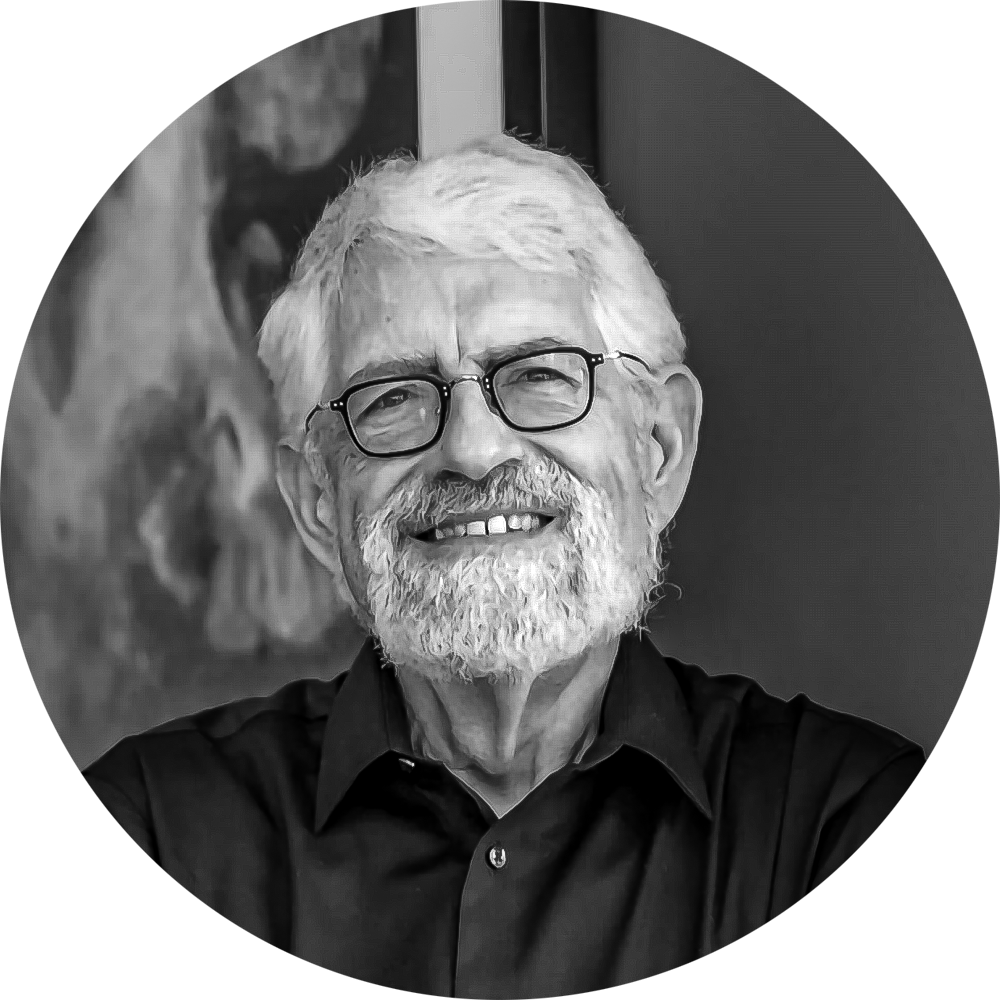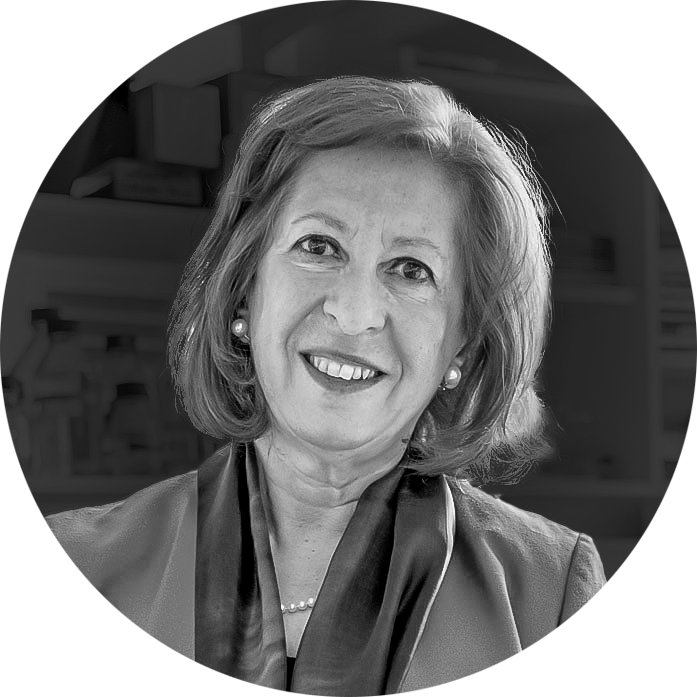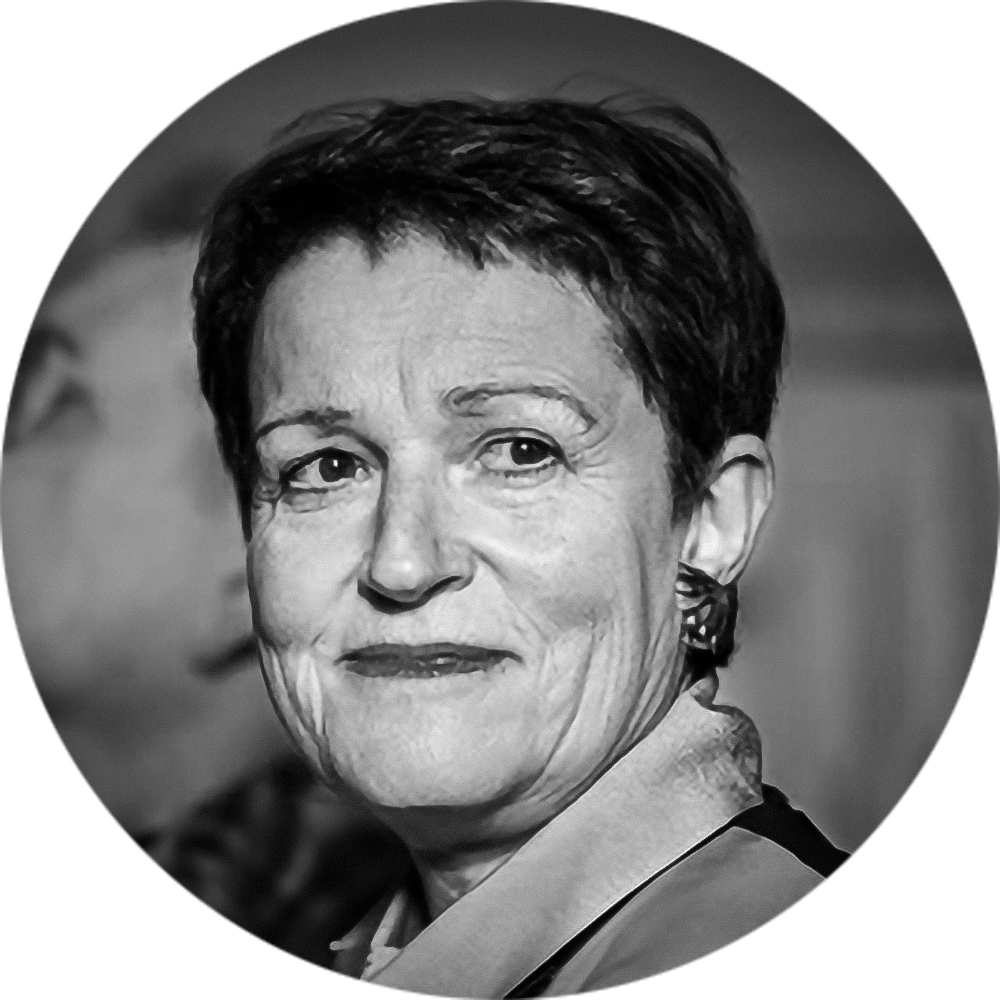Named Lectures
Presidential Symposium - Named Lectures
Sunday, 22 June 2025, 10:30-12:30 (EEST), Main Auditorium

Haim Sompolinsky
Brain Prize Lecture
How the brain represents the world
Haim Sompolinsky earned his PhD in Physics from Bar-Ilan University, Israel, and was appointed full professor at the Hebrew University of Jerusalem in 1986. He currently serves as a Professor of Molecular and Cellular Biology and of Physics (in Residence) at Harvard University, USA, and is Professor Emeritus of Physics and Neuroscience at the Hebrew University.
Sompolinsky is a pioneering founder of the field of computational neuroscience. His research utilises methods from statistical physics to explore the emergent dynamics and collective behaviour of complex neuronal circuits, with a focus on their role in critical brain functions such as learning, memory, perception, and cognition.
A key area of his work has been the study of the interplay between excitatory and inhibitory neural signals, a long-standing issue in neuroscience. His research has deepened our understanding of variability in neuronal firing, the mechanisms that stabilise neural dynamics, and the consequences of disrupted excitation-inhibition balance in neurological disorders.
In recent years, Sompolinsky has developed geometric-theoretic approaches to investigate cognitive functions, such as vision and language, in both artificial neural networks and biological brain circuits. His work has uncovered striking similarities between the two, creating new opportunities for studying intelligence in both natural and artificial systems.
Sompolinsky's research extends to the neuronal mechanisms underlying human voluntary movements, utilising behavioural and electroencephalogram (EEG) measurements as well as modelling. He also explores the implications of neuroscience and physics for understanding human freedom, agency, and moral responsibility.

Marina A.J. de Koning-Tijssen
Moritz Romberg Award Lecture
Myoclonus, you need to know it to see it
Marina A.J. de Koning-Tijssen is a neurologist and researcher in movement disorders. Since 2012, she has been Professor of Neurology at the University Medical Centre Groningen (UMCG) and Chair of its Expertise Centre for Movement Disorders, which is part of the European Reference Network for Rare Neurological Disorders (ERN-RND).
She trained in neurology at Leiden University, where she completed her PhD on Hyperekplexia. Afterward, she worked as a neurologist in Amsterdam before moving to Groningen. During her studies, she also spent time at Johns Hopkins University in the USA and the Institute of Neurology in London, UK.
Her research focuses on jerky movements and dystonia, with a particular emphasis on integrating clinical, neurophysiological, and imaging data through machine learning techniques. Her current project, Next Generation Phenotyping – The Next Move in Movement Disorders (NEMO), aims to better classify movement disorder phenotypes. She has received multiple prestigious grants for this work, including funding from the European Regional Development Fund, ZONMW-Top, and NOW-TTW.
In 2024, she received the Stanley Fahn Presidential Lecture Award from the International Parkinson and Movement Disorder Society. Prof. de Koning-Tijssen has held several European leadership roles, including Chair of the clinical line for the European COST platform Dystonia, and WP leader in the ERN-RND. She is currently Secretary of the International Parkinson and Movement Disorder Society.

Maria Grazia Spillantini
Camillo Golgi Award Lecture
Protein aggregation and its relevance for neurodegenerative diseases
Maria Grazia Spillantini is a Professor of Molecular Neurology at the University of Cambridge. She was born and grew up in the Province of Arezzo, Italy, and earned her Laurea in Biological Sciences, Summa Cum Laude, from the University of Florence. Her career includes positions at the University of Florence, Instituto Superiore di Sanità in Rome, INSERM in Paris, and the Medical Research Council in Cambridge.
In 1987, she joined the Medical Research Council Laboratory of Molecular Biology, obtaining her PhD in Molecular Biology from Cambridge University. Following a postdoctoral fellowship, she led a research group at the Institute of Cell Biology in Rome before moving to the Cambridge Centre for Brain Repair, and later to the Clifford Allbutt Building, focusing on diseases characterised by tau and alpha-synuclein aggregates.
Spillantini’s group identified alpha-synuclein as the main component of Lewy bodies in Parkinson’s disease and discovered a mutation in the MAPT gene linked to frontotemporal dementia. Her accolades include the Potamkin Prize, Cotzias Prize, Van Andel Prize, and Camillo Golgi Prize, as well as the Officer of the Order of the Star of Italy, the Tudichum Medal and the Mika Salpeter Lifetime Achievement.
Spillantini is a member of Academia Europaea, L'Academia Nazionale delle Scienze detta dei XL, and the European Molecular Biology Organization (EMBO), and a fellow of the Academy of Medical Sciences, the Royal Society, and the Royal Society of Biology. She is also a Professorial Fellow at Clare Hall and a life member of Peterhouse, Cambridge.

Claudio Lino Alberto Bassetti
Charles-Édouard Brown-Sequard Award Lecture
Sleep by the brain, for the brain: Implications for neurology
Claudio Bassetti received his medical degree in Basel and trained in neurology in Bern and Lausanne. He completed his research fellowships in basic neurophysiology in Basel, and in sleep in Ann Arbor, Boston and Madison. In 2000, he became professor and vice-chair of neurology in Zurich. In 2009 he founded the Neurocenter of Southern Switzerland. From 2012 until 2024 he chaired the Neurology Department of the University Hospital in Bern, Switzerland.
Since 2020 he is the Dean of the Faculty of Medicine in Bern.
Bassetti’s major scientific interests are the relationship between sleep and neurological disorders and teaching in general neurology. He has published more than 600 articles and 10 books, and has an H-Index of 105.
Bassetti has served as president of the European Neurological Society, European Sleep Research Society and Swiss Neurological Society. He is an elected member of the Swiss Academy of Medical Sciences, which he served as board member for eight years. He was president of the European Academy of Neurology from 2019 to 2022 and is currently the EAN Representative to the Board of the European Brain Council. Prof. Bassetti launched the EAN Brain Health Plan in 2022 and the Swiss Brain Health Plan in 2023.

Catherine Lubetzki
Anita Harding Award Lecture
Multiple sclerosis, from biology to clinical translation. A focus on nodes of Ranvier and electrical activity
Professor Catherine Lubetzki is a distinguished French neurologist, celebrated for her pioneering research in multiple sclerosis (MS). She is an Emeritus professor at Sorbonne University and previously led the Department of Neurology at the Pitié-Salpêtrière Hospital in Paris, where she also coordinates the hospital’s MS clinical research centre.
Lubetzki completed her medical training at Paris Descartes University and earned her doctorate from Pierre and Marie Curie University, focusing on myelin and its role in the nervous system. Early in her career, she collaborated with neuropharmacologist Jacques Glowinski at the Collège de France, which inspired her commitment to neurology and MS research.
In 1996, Lubetzki demonstrated the role of electrical activity in the process of central nervous system (CNS) myelination. Her work revealed that action potentials in axons influence myelin formation and conduction velocity, a breakthrough in understanding nerve signal transmission. She further identified the critical role of oligodendrocyte progenitor cells in myelination, paving the way for innovative repair strategies. She also identified several cues acting either on promotion or blockade of CNS myelination. Currently, she is investigating pro-myelinating therapies and the impact of electrical stimulation at the Paris Brain Institute (ICM).
Lubetzki’s numerous accolades include the Grand Prix Scientifique de la Fondation NRJ (2008), the International Pasteur-Weissman prize (2021), and the Charcot Award from the Multiple Sclerosis International Federation (2019), where she was the first female recipient. She continues to serve in key leadership roles, advancing research and improving outcomes for individuals living with MS.
NEW: Anita Harding Award Lecture
Anita Harding is considered one of the most outstanding female figures in neurology of her generation, worldwide. The Anita Harding Award has been established to highlight the major achievements of women in neurology. The lecture delivered during the Presidential Symposium will serve as a beacon to inspire younger female neurologists and neuroscientists to pursue their careers, as well as to underscore achievements in and contributions to gender equality in neurology.